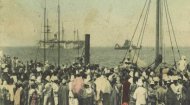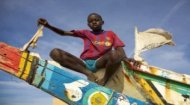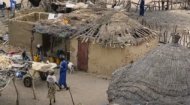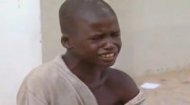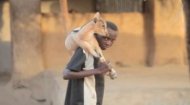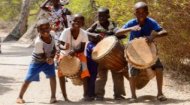|
Senegal's society is a colourful mosaic of ethnic groups, languages, and traditions, all bound by a profound sense of community and an overarching spirit known as Teranga – a Wolof word embodying hospitality, generosity, and respect. This philosophy is not merely a custom but a way of life, evident in every interaction and shared moment. The largest ethnic group is the Wolof, comprising around 40% of the population, followed by the Pulaar (Fula), Serer, Jola, Mandinka, and various others. While French is the official language, Wolof serves as the lingua franca, widely spoken and understood across the country. English is gaining traction, especially in the business and tourism sectors.
Culture permeates every aspect of daily life. Music is the heartbeat of Senegal, with genres like Mbalax (a fusion of traditional Senegalese sabar drumming and mbalax, jazz, funk, and Latin music) captivating audiences globally, championed by legends like Youssou N'Dour. Traditional griots, hereditary storytellers, musicians, and praise singers, continue to preserve oral traditions and historical narratives. Senegalese cuisine is rich and flavourful, with Thieboudienne (fish and rice) being the national dish, complemented by Yassa (chicken or fish with onion and lemon), and Mafe (peanut stew). Family values are paramount, emphasising respect for elders, communal support, and strong intergenerational ties. Senegal's economic profile is one of the most stable and dynamic in West Africa, driven by a mix of traditional sectors and emerging industries. Historically, agriculture has been the backbone, with groundnuts, millet, rice, and cotton being key crops. Fishing also plays a crucial role, contributing significantly to exports and providing livelihoods for coastal communities with Senegal being one of the world's largest exporters of fish and fish products. In recent decades, the service sector has emerged as the largest contributor to GDP, encompassing telecommunications, banking, and tourism. Dakar, as a major regional hub, attracts significant foreign investment and houses numerous international organisations. Mining, particularly of phosphates and gold, also adds to the country's economic output. Senegal is currently on the cusp of a transformative period with the discovery of significant offshore oil and gas reserves. Commercial production is expected to begin in the coming years, promising substantial revenue streams that could fundamentally reshape the nation's economic future. The government is committed to ensuring these revenues are managed transparently and equitably to foster sustainable development and improve the living standards of its citizens. Infrastructure development, including port expansions, new airports, and improved road networks, further supports this growth trajectory. |
Senegal Profile |
Senegal Profile |
Senegal Profile | Senegal Profile |
Video, pictures, facts and figures about daily village life in Senegal where rural poverty runs at 75%.
More >
Find out more about children's lives in Senegal in pictures and video together with facts and figures.
More >

|
Despite its impressive progress, Senegal faces several significant challenges that require ongoing attention and strategic solutions. One of the most pressing issues is youth unemployment, particularly in urban areas. A rapidly growing young population, coupled with an education system that sometimes struggles to match skills with market demands, leads to high levels of underemployment and a strong desire for economic opportunities. Poverty, though decreasing, remains a concern, particularly in rural areas where access to education, healthcare, and basic services can be limited. Disparities between urban and rural populations persist, driving internal migration towards major cities. Climate change also poses a threat to Senegal, a coastal nation vulnerable to rising sea levels, coastal erosion, and extreme weather events. Desertification and erratic rainfall patterns affect agricultural productivity, contributing to food insecurity in certain regions. The country is actively engaged in climate adaptation and mitigation efforts, seeking international partnerships and implementing local resilience programs. Life in Senegal unfolds with a unique rhythm, blending tradition with the demands of modernity. A typical day often begins early, especially for those involved in fishing or market activities. The aroma of strong coffee or ataya (mint tea) often fills the air as families gather for breakfast. Children prepare for school, dressed in vibrant uniforms, while adults commute to work or open their small shops. The markets are the beating heart of any Senegalese town, bustling with energy, colours, and sounds. Vendors hawk everything from fresh produce and fish to textiles, spices, and handcrafted goods. The art of bargaining is an integral part of the experience. Community life thrives around family compounds and neighbourhood mosques, where people share meals, stories, and support. The communal Thiébou-Diène dish, eaten from a large shared platter, symbolises this strong bond. Evenings are often spent with family, enjoying music, or simply relaxing on the terrace. Football is a national passion, and matches evoke fervent excitement. Religious observances, like daily prayers, punctuate the day, reinforcing the spiritual fabric of society. Despite the challenges, a sense of optimism, resilience, and the ever-present Teranga spirit pervades daily interactions, making everyday life in Senegal a rich and engaging experience. Senegal’s diverse landscapes and rich cultural heritage offer a plethora of attractions for the discerning traveller. Dakar: The vibrant capital city is a whirlwind of activity, offering a mix of modern skyscrapers, bustling markets like the Marché Kermel, beautiful mosques, and lively nightlife. The Monument de la Renaissance africaine stands majestically as a symbol of African pride. Île de Gorée: A UNESCO World Heritage site, this island off the coast of Dakar is a solemn reminder of the transatlantic slave trade. Its colourful colonial architecture belies the tragic history housed within the Maison des Esclaves (House of Slaves), making it a profoundly moving historical pilgrimage. Today Senegal is widely seen as a relatively stable nation however remains in 164th place out of 193 countries and territories in 2025 when ranked in terms of life expectancy, literacy, access to knowledge and the living standards of a country. While Senegal has a strong democratic tradition, issues such as governance reform, strengthening institutions, and combating corruption remain ongoing efforts. Ensuring equitable distribution of wealth, especially from the nascent oil and gas sector, are seen as being crucial for maintaining social cohesion and sustained development. On the profile pages above you can check out all about Senegal, its people, history and culture in greater depth. |
 Islam is the dominant religion, practised by over 95% of the population, mostly adhering to Sufi brotherhoods like the Mourides and Tijaniyya. These brotherhoods play a significant role in social and political life, fostering tight-knit communities and promoting peace. Despite this, Senegal is also noted for the issue of its talibé street children who are sent to Koranic schools but who spend most of their time begging on the streets of urban areas such as Dakar, then face a harsh regime on their return to school if they have failed to collect enough. A small Christian minority, primarily Catholic, coexists harmoniously with its Muslim counterparts. Religious tolerance is a hallmark of Senegalese society.
Islam is the dominant religion, practised by over 95% of the population, mostly adhering to Sufi brotherhoods like the Mourides and Tijaniyya. These brotherhoods play a significant role in social and political life, fostering tight-knit communities and promoting peace. Despite this, Senegal is also noted for the issue of its talibé street children who are sent to Koranic schools but who spend most of their time begging on the streets of urban areas such as Dakar, then face a harsh regime on their return to school if they have failed to collect enough. A small Christian minority, primarily Catholic, coexists harmoniously with its Muslim counterparts. Religious tolerance is a hallmark of Senegalese society.